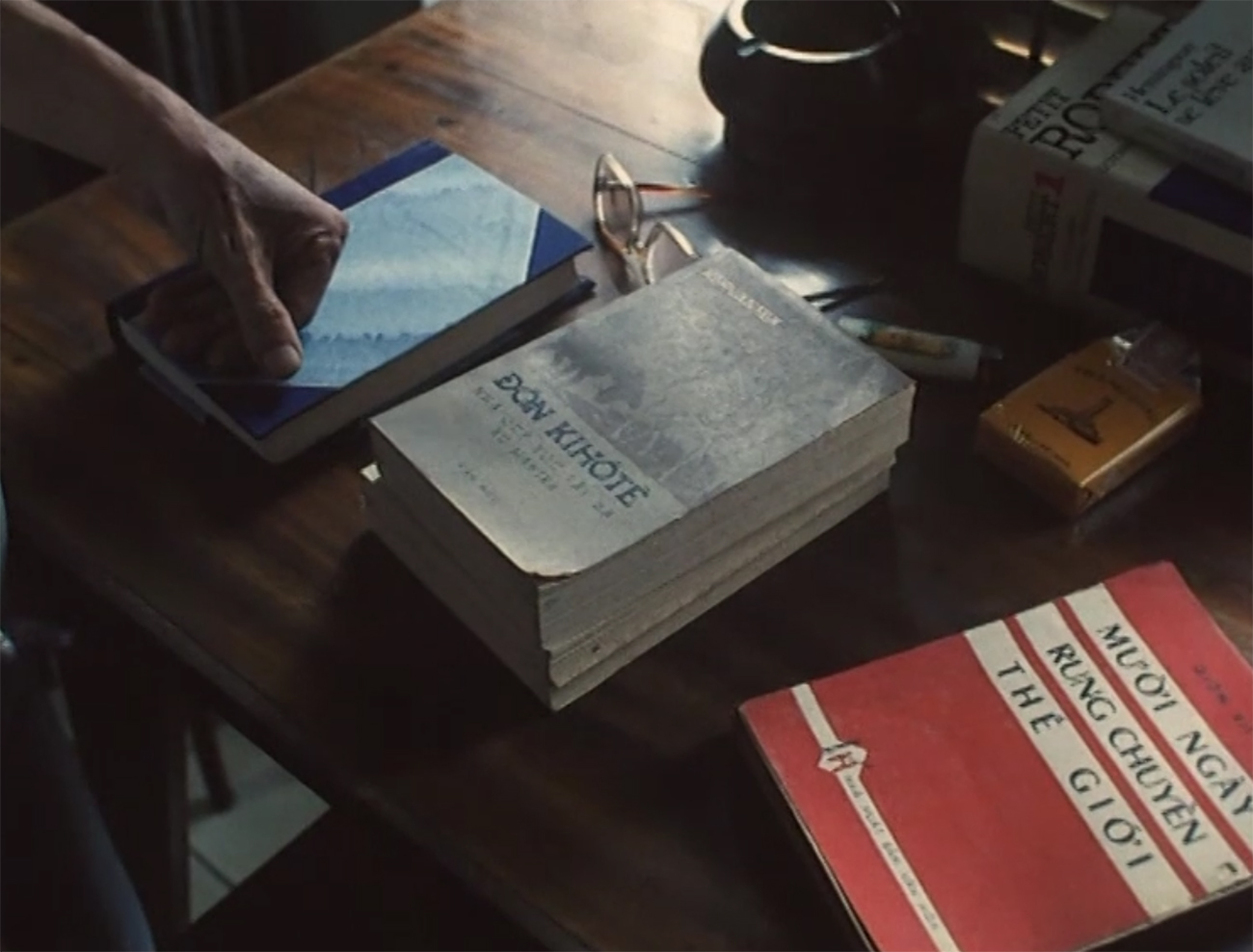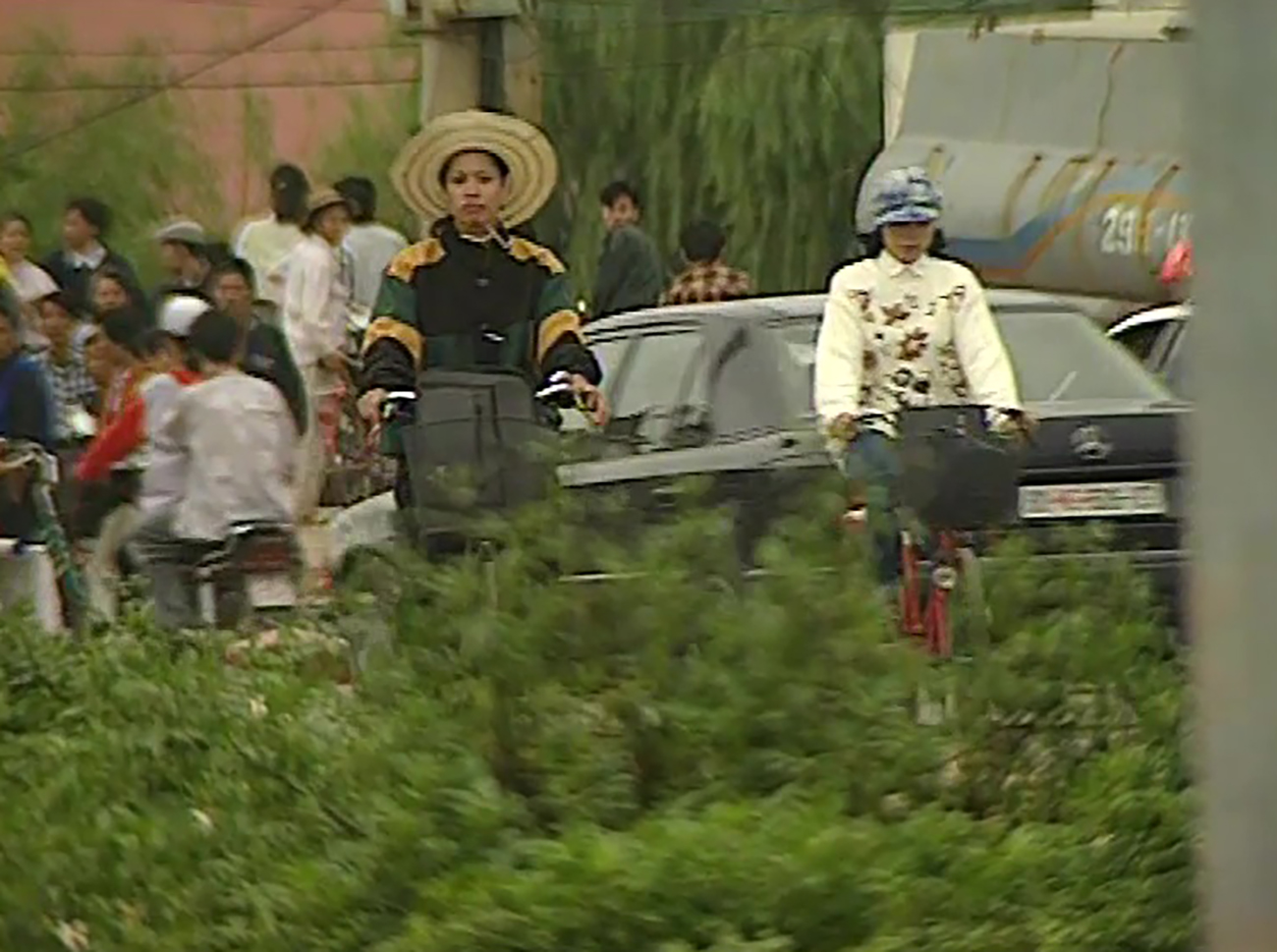Point de départ (Starting Place)

More than 20 years after People’s War, which shaped his commitment against US war policy, Kramer returns to his starting point: Vietnam. “This was,” says Kramer, “what I knew, what I was interested in, what I was most invested in, where I had already made another film. I wondered how they could see things there: having paid such a price, being given the chance to participate in the New World Economy at gunpoint on the terms of the New World Order. It was either that, or disappear into oblivion, like Cuba.” Point de départ is an attempt to connect an immutable past with an irrefutable present. In Hanoi, despite economic transformations, the revolutions of the past half century live on in the memories of those who lived through them, people such as Kramer’s former guide from 1969, who has since translated Don Quixote, or a tightrope walker in the national circus who balances away the ghost of lost hope, or a man who took photos of B52s and another who lost his fingers shooting them down. But also activist Linda Evans, who was part of the crew that filmed People’s War and was sentenced to 40 years in prison in 1985. “You can see my film as a mourning process for the ideas that put Linda in prison. My ideas are in prison.”
“Many of the ideas that some people died for have been forgotten. It is necessary to read through the pages of recent history. The ‘starting place’ is really after the film. It is now. I could have made this film in another place. The most important thing was not to talk particularly or exclusively about Vietnam, but was, above all, this idea of ‘starting place.’ Because that’s the way things are, we have to start out from a look at what we have experienced over the last thirty years.”
French, English and Vietnamese spoken, English subtitles
Say Kom Sa

In 1997, Kramer visited Vietnam for the third time and shot this film, concluding his ‘Vietnam Trilogy’. His DV camera observes the accelerated transformation of society into the free-market capitalist system and the things that are about to be forgotten and lost in the process. The intimate travel diary turns into a deep meditation on globalisation and the filmmaker’s point of view.
“In the apartment, there are gifts from old friends in Vietnam: reminders of a different history. But the time is now, 1998: The ‘market economy’, that’s our common fate. A constructionsite on the edges of ‘West lake’ in Hanoi. This lake in the centre of Hanoi is being gradually walled in by huge modern hotels. The village ist disappearing. Everybody knows: It’s just a matter of money now. Who’s rich and who’s poor, who can and who can’t. That is how it is: ‘C’est comme ça ...’ ”
French spoken, English subtitles